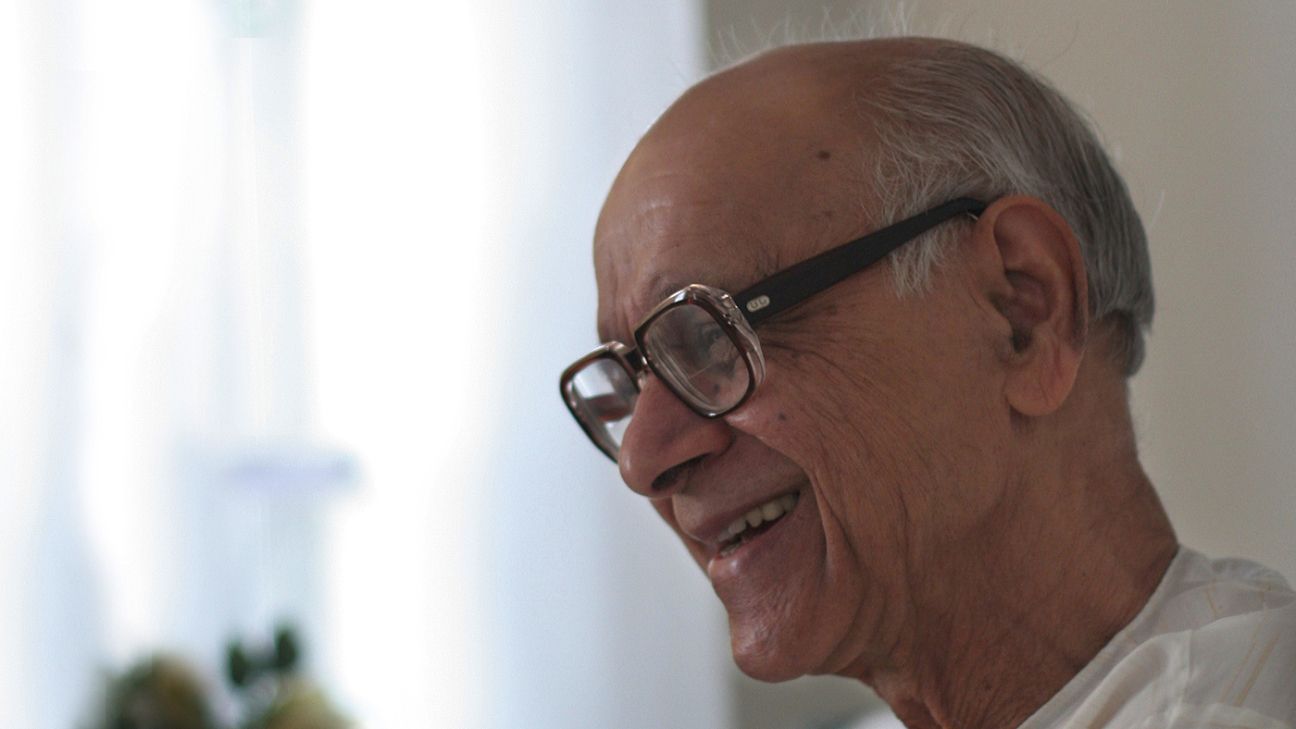
In a heartfelt tribute to Bapu Nadkarni, who died on Friday aged 86, Sunil Gavaskar has hailed the former India allrounder's attitude and cricketing acumen. Gavaskar was in Rajkot, as part of the commentators' panel for the India-Australia ODI, when he heard the news of Nadkarni's death.
"He came as assistant manager for quite a number of our tours," Gavaskar said. "He was very encouraging. His favourite term from where we all learnt from was 'chhodo mat (hang in there)'. He was gritty despite playing in the days when gloves and thigh pads were not very good, not much protective equipment as you would get hit, but still hang in there as he believed in chhodo mat. You are playing for India. That thing we learnt from him.
Very sad to hear about the demise of Shri Bapu Nadkarni. I grew up hearing about the record of him bowling 21 consecutive maiden overs in a Test. My condolences to his family and dear ones.
— Sachin Tendulkar (@sachin_rt) January 17, 2020
Rest in Peace Sir. pic.twitter.com/iXozzyPMLZ
"Every time he was on a tour he was very very helpful in terms of strategy. At lunch time or tea time, he would say 'try this', if you were a fielding captain. He would tell, 'bring this bowler, or ask this bowler to bowl around the wicket.' He was fantastic. Indian cricket has lost a real champion."
Gavaskar also recalled Nadkarni's role in getting Sandeep Patil to bat in India's second innings in Sydney in 1981, after he had retired hurt following a blow to the head from a Len Pascoe bouncer in the first innings. Patil went on to score 174 in the next Test match in Adelaide.
"He [Nadkarni] was the one who kept urging Sandeep that 'it doesn't matter, you are here and you should go out and bat again.' Bapuji was the assistant manager on the tour. It was only because of him that Sandeep went on to score that 174 in the next Test match because Bapuji was constantly there with him."
Milind Rege, the former Mumbai captain, said Nadkarni was a true allrounder.
"Bapu Nadkarni was a great allrounder of Indian cricket and definitely a pillar of Mumbai cricket," Rege said. "He didn't get the accolades he deserved. He was one of the lead spinners and then would bat at No. 5 for Mumbai."
Rege reckoned that Nadkarni's figures of 32-27-5-0 in his famous spell against England in Chennai would never be eclipsed. "Records are meant to be broken, but 21 overs and 5 balls without giving a run will never ever beaten by anybody."
Rege would call Nadkarni 'Bapu saheb', as a mark of respect. Rege, along with his friend and teammate Gavaskar, learned a valuable lesson from Nadkarni, a characteristic Mumbai cricket is often associated with. "The khadoos thing that applies to Mumbai cricket, he would be right at the top. He was not a stylish player at all. With that stance he had, he managed to score important runs including the 283 not out against Delhi in the 1960-61 Ranji Trophy semifinals. He just would not give anything away, he was that khadoos."
Off the field, Nadkarni was a soft-spoken man, known to be particular about details. "Bapu saheb was a lovely person," Rege said. "The gentleman cricketer. Sunil and I played with Bapu saheb when we were 17. He was among the Mumbai greats who nurtured us. He had a great sense of humour. And he could take a joke on himself and laugh it away."
Chandu Borde, one of India's leading lights in the 1960s, presented an example of Nadkarni supporting him at what he called a "crucial" time in his career. "It was one of the early Tests of my career," Borde said. "I do not recollect exactly which one, but it was in Calcutta. I got a telegram from Pune (Borde's home). It was to inform me that my relative Dayanand, who had played a big role in my cricket during my young days, had passed away in an accident.
"Bapu hid the telegram under the pillow while I was batting. Later when I read the telegram I confronted Bapu: "What is this Bapu? Why did you this?" Bapu calmly told me he did not want me to be distracted. It was a crucial match for me. Till then my performances were not exciting or big. This was a crucial innings for me and Bapu did not want me to be disturbed."
Nadkarni, Borde said, always put the team first. "He was, what we in Marathi say an ajat shatru, one who had only friends and no enemies. Bapu was a very good team man, always appreciating his teammates' performances."
According to Borde, Nadkarni's upbringing and his family's interest in sports was a major factor in his open personality. Borde recounted that Nadkarni was good at more than one sport, having played badminton at a high level. As for his cricket: "He was a very useful man to the team, a great contributor, stayed long at the wicket, was a good close-in fielder, and was a very accurate left-arm spinner."















 Phone: (800) 737. 6040
Phone: (800) 737. 6040 Fax: (800) 825 5558
Fax: (800) 825 5558 Website:
Website:  Email:
Email: 






